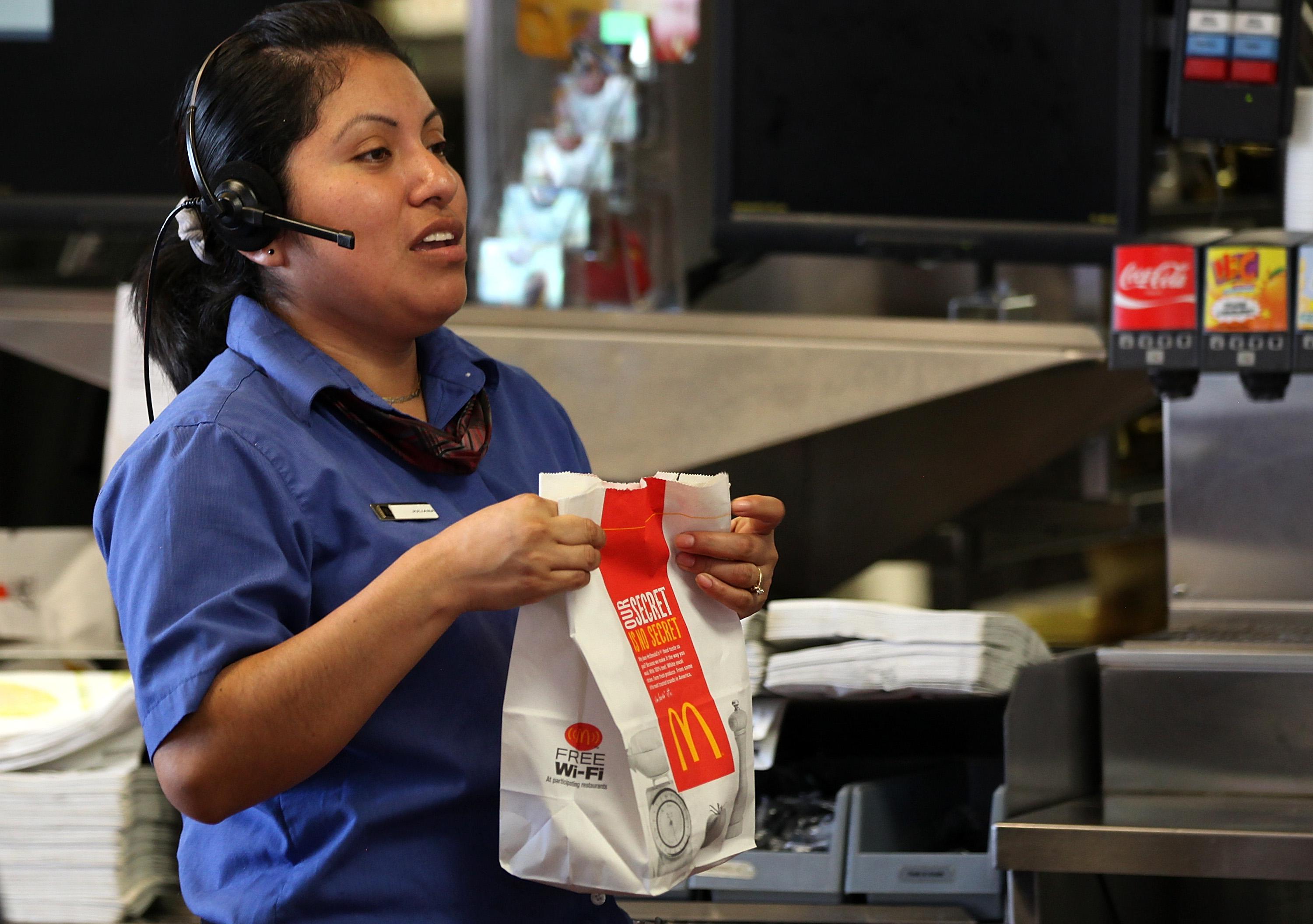McDonald’s will raise wages for workers by more than 10 percent beginning July 1, the Wall Street Journal reports. The increase will bring hourly pay at least $1 above the local legal minimum for roughly 90,000 employees of the approximately 1,500 stores McDonald’s owns in the U.S. It will also boost the average hourly rate for those employees to $9.90 from $9.01. By the end of 2016, McDonald’s plans for that hourly figure to climb above $10, per the Journal’s report.
In addition to upping wages, McDonald’s will allow workers who have been at the company for at least a year to accumulate up to five days of annual paid time off. This is huge. As my colleague Jordan Weissmann explained in Slate last July, service workers don’t just need more money—they also desperately need some vacation. In most other developed countries, PTO for workers isn’t a benefit, it’s a national requirement. But in 2014, the Bureau of Labor Statistics reported that only 55 percent of service workers reported having access to paid vacation. The years immediately prior weren’t much different.
The McDonald’s announcement follows similar decisions from other major U.S. employers, most notably in retail. Over the last few months, Target and Walmart both said they would raise minimum hourly pay for workers to $9 by April. Gap, Ikea, and TJX, the parent of T.J. Maxx and Marshalls, have also announced wage increases. One important caveat about McDonald’s decision is that it only applies to employees of company-owned stores. Roughly 90 percent of the 14,350 U.S. McDonald’s are operated by franchisees, who are free to set their own pay policies. Steve Easterbrook, the company’s chief executive since March, told the Journal that McDonald’s would “absolutely not” consider requiring franchisees to raise pay or add benefits to their workers’ contracts.
Beyond facing competitive pressure, McDonald’s has been under fire from labor activists to boost pay and reform its working conditions. Just a few weeks ago, the chain confronted a slew of health and safety complaints from restaurant employees who said they suffered serious burns on the job and were told by managers to “just put some mustard on it.”
The most vocal of these activist groups, the Fight for 15, has coordinated several national protests against fast-food companies and has another wave planned for April 15. The goal, as Steven Greenhouse wrote in the New York Times earlier this week, is to “turn the fast-food workers’ fight for a $15 hourly wage into a broad national movement of all low-wage workers that combined the spirit of Depression-era labor organizing with the uplifting power of Dr. King’s civil rights campaign.” In a statement sent around Wednesday afternoon, Kwanza Brooks, a McDonald’s worker affiliated with Fight for 15, called the change “too little to make a real difference” and a “weak move for a company that made $5.6 billion in profits last year.”
McDonald’s, for its part, is framing the move not as a response to critics but an effort to improve a flailing operation and stay competitive. “What we need to underpin that is highly motivated teams in our restaurants,” Easterbrook told the Journal. “Motivated teams deliver better customer service and delivering better customer service in our restaurants is clearly going to be a vital part of our turnaround.”
